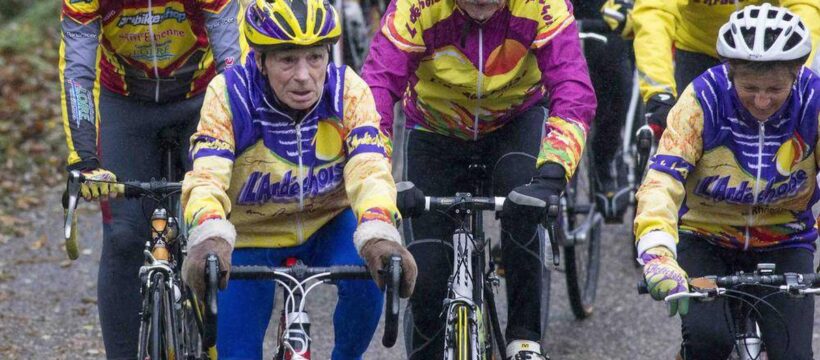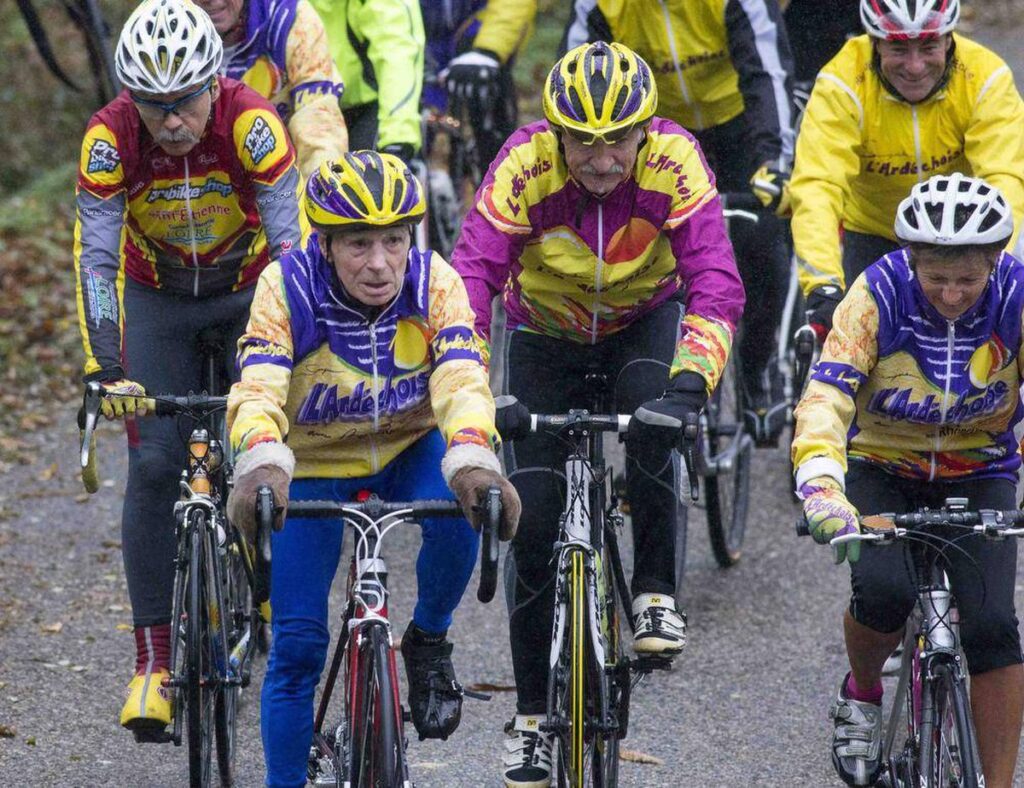Lazarus sees cycling as an anti-ageing strategy
My regular readers will know that I’m a huge fan of exercise, and specifically cycling as an anti-ageing strategy. So I was excited to read about the aptly named than Norman Lazarus, a King’s College Professor who has researched the huge benefits of exercise to slow down the ageing process. And he’s a keen cyclist.
At the age of 50, he was unfit and overweight and decided he needed to change his life. He lost weight, started to exercise, and embraced life with new vigour. Now 84, he still works as a professor at King’s College London. He has no age-related diseases, is medication-free and has a theory, backed up by decades of research, that how we age is not out of our hands.
It is not a question of genes or bad luck. Lazarus argues that when we hit middle age we can choose to age well and wisely, as he did. Or we can sit on the sofa eating pizza and when we retire, we will reap what we have sowed.
“The way we approach ageing is totally inadequate. Ageing is not a disease and the diseases of ageing have little to do with genetics. The real problems are social and lifestyle.
“If you eat properly and you exercise and you do that for a lifetime, your probability of getting one of these so-called diseases of ageing — I call them lifestyle diseases — is very small. And if you do get one, your probability of recovery is higher.”
Lazarus urges us to eat less, move more and enjoy ourselves. He says that for years people have received mixed messages with the promise that exercise will help us to lose weight.
Lazarus says, and I agree with him, that fad diet after fad diet obscures how the only way to lose weight is to consume fewer calories. “You mustn’t think of exercise being imposed on you. You must internally generate the idea that it’s for enjoyment. A dog running down the road isn’t thinking, ‘I’m raising my heart rate.’ It’s enjoying itself.”
In 2018 research conducted by Lazarus and others was published in the journal Ageing Cell. A veteran long-distance cyclist, he found it curious that having been taught at medical school that age brings with it disease, he and his fellow cyclists — including some who were, like him, in their eighties — did not have these illnesses. Further investigation found they had the immune systems of 20-year-olds and the body fat of teenagers. Everything about them was in top condition, from their hearts to their hormones.
Intrigued, Lazarus and his colleagues at King’s recruited a group of highly active older cyclists, men and women between the ages of 55 and 79, including himself. Most belonged to a non-competitive long-distance cycling club. They ran a battery of tests, including how efficiently their body was supplied with oxygen when exercising, muscle structure, physiology and mental agility, and compared them with people who did not exercise.
They found, he says, that everything was better because they were exercising. On virtually every attribute for which they were measured they scored significantly higher than people of the same age who did not exercise.
One of the things that annoys Lazarus the most, however, is the association between exercise and weight loss. “Thirty-five years of research has shown that is incorrect. The amount of energy you use as a normal person exercising is minuscule compared to the mountain of calories you need to move to lose weight….Eat less to lose weight. Exercise to improve your physiology.”



Totally agree. I think people should disobey the old. Cycling is a very good way.